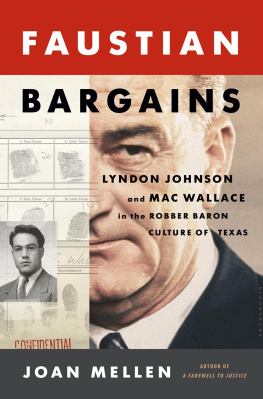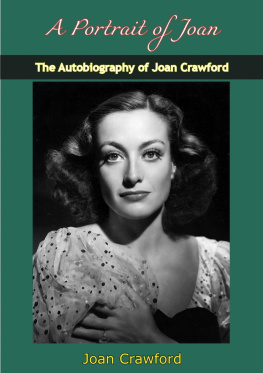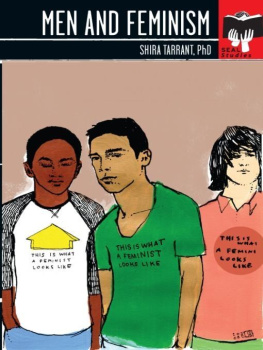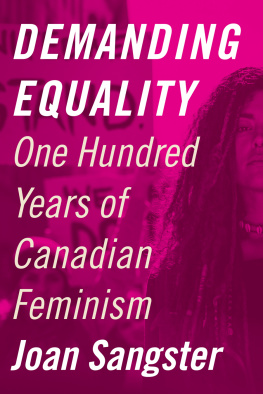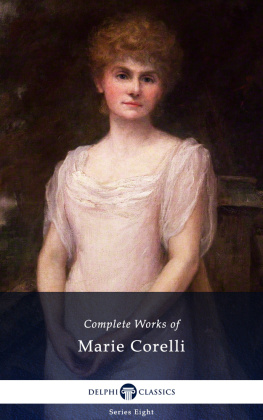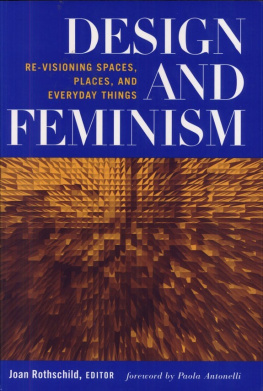Joan Marie Johnson - Funding Feminism
Here you can read online Joan Marie Johnson - Funding Feminism full text of the book (entire story) in english for free. Download pdf and epub, get meaning, cover and reviews about this ebook. publisher: The University of North Carolina Press, genre: Romance novel. Description of the work, (preface) as well as reviews are available. Best literature library LitArk.com created for fans of good reading and offers a wide selection of genres:
Romance novel
Science fiction
Adventure
Detective
Science
History
Home and family
Prose
Art
Politics
Computer
Non-fiction
Religion
Business
Children
Humor
Choose a favorite category and find really read worthwhile books. Enjoy immersion in the world of imagination, feel the emotions of the characters or learn something new for yourself, make an fascinating discovery.

- Book:Funding Feminism
- Author:
- Publisher:The University of North Carolina Press
- Genre:
- Rating:4 / 5
- Favourites:Add to favourites
- Your mark:
- 80
- 1
- 2
- 3
- 4
- 5
Funding Feminism: summary, description and annotation
We offer to read an annotation, description, summary or preface (depends on what the author of the book "Funding Feminism" wrote himself). If you haven't found the necessary information about the book — write in the comments, we will try to find it.
Funding Feminism — read online for free the complete book (whole text) full work
Below is the text of the book, divided by pages. System saving the place of the last page read, allows you to conveniently read the book "Funding Feminism" online for free, without having to search again every time where you left off. Put a bookmark, and you can go to the page where you finished reading at any time.
Font size:
Interval:
Bookmark:
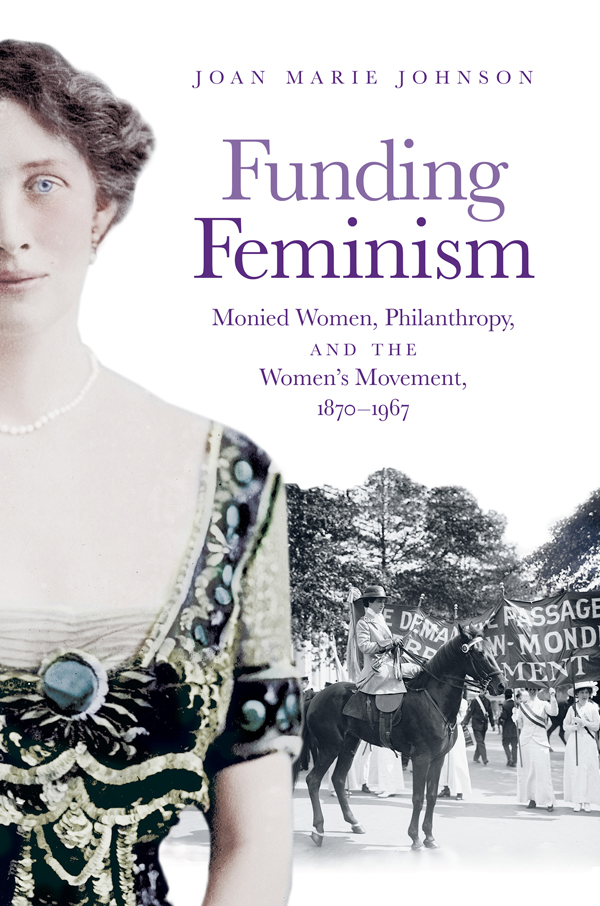
Funding Feminism
GENDER AND AMERICAN CULTURE
Coeditors
Thadious M. Davis and Mary Kelley
Editorial Advisory Board
Nancy Cott
Jane Sherron De Hart
John DEmilio
Linda K. Kerber
Annelise Orleck
Nell Irvin Painter
Janice Radway
Robert Reid-Pharr
Noliwe Rooks
Barbara Sicherman
Cheryl Wall
Emerita Board Members
Cathy N. Davidson
Sara Evans
Annette Kolodny
Wendy Martin
Guided by feminist and antiracist perspectives, this series examines the construction and influence of gender and sexuality within the full range of Americas cultures. Investigating in deep context the ways in which gender works with and against such markers as race, class, and region, the series presents outstanding interdisciplinary scholarship, including works in history, literary studies, religion, folklore, and the visual arts. In so doing, Gender and American Culture seeks to reveal how identity and community are shaped by gender and sexuality.
A complete list of books published in Gender and American Culture is available at www.uncpress.unc.edu.
JOAN MARIE JOHNSON
Funding Feminism
Monied Women, Philanthropy, and the Womens Movement, 18701967
The University of North Carolina Press Chapel Hill
This book was published with the assistance of the Greensboro Womens Fund of the University of North Carolina Press.
Founding Contributors: Linda Arnold Carlisle, Sally Schindel Cone, Anne Faircloth, Bonnie McElveen Hunter, Linda Bullard Jennings, Janice J. Kerley (in honor of Margaret Supplee Smith), Nancy Rouzer May, and Betty Hughes Nichols.
2017 Joan Marie Johnson
All rights reserved
Set in Arno Pro by Westchester Publishing Services
Manufactured in the United States of America
The University of North Carolina Press has been a member of the Green Press Initiative since 2003.
Library of Congress Cataloging-in-Publication Data
Names: Johnson, Joan Marie, author.
Title: Funding feminism : monied women, philanthropy, and the womens movement, 18701967 / Joan Marie Johnson.
Other titles: Gender & American culture.
Description: Chapel Hill : University of North Carolina Press, [2017] | Series: Gender and American culture | Includes bibliographical references and index.
Identifiers: LCCN 2017004067| ISBN 9781469634692 (cloth : alk. paper) | ISBN 9781469634708 (ebook)
Subjects: LCSH : FeministsCharitable contributionsUnited StatesHistory. | FeminismUnited StatesHistory. | Women philanthropistsUnited StatesHistory.
Classification: LCC HQ 1419 . J 64 2017 | DDC 305.420973dc23
LC record available at https://lccn.loc.gov/2017004067
Jacket illustrations: Left, photograph of Gertrude Minturn Pinchot (courtesy of the George Grantham Bain Collection, Library of Congress Prints and Photographs Division, LC-DIG-ggbain-07824); right, photograph of Juliet Rublee on horseback at a woman suffrage parade (courtesy of the Harris & Ewing Collection, Library of Congress Prints and Photographs Division, LC-DIG-hec-04146).
Portions of chapters 1 and 2 were previously published in a different form as Following the Money: Wealthy Women, Feminism, and the American Suffrage Movement, Journal of Womens History 27:4 (Winter 2015): 6287. 2015 Journal of Womens History. Reprinted with permission of Johns Hopkins University Press.
For Don, Darci, Sophie, and Elise
Contents
Illustrations
Acknowledgments
It was a pleasure to write this history of women philanthropists who funded the womens movement, and to consider ways in which these monied women used their philanthropy to give them a voice when, despite their privilege, they were perceived to be powerless due to their gender. Despite their many flaws, these women did advance equality for women in the United States, and feminist organizations now come much closer to working for equity for all, regardless of race, ethnicity, class, religion, sexuality, gender expression, and disability.
First I would like to thank the many librarians and archivists who assisted me as I worked on this book. The first archival research trip I took was to the Countway Library, Harvard University Medical School, as the recipient of a Foundation for Women in Medicine Fellowship at the Center for the History of Medicine at Countway. The library has a treasure trove of papers relating to the development of the pill and the birth control movement that complement other collections at the Library of Congress and Smith College. As have many other historians of womens experiences in the United States, I found many sources and received assistance from librarians in the Smith College Archives and the Sophia Smith Womens History Collection at Smith College, and gratefully acknowledge a grant to travel to their collections. Likewise, I was directed to a great number of sources at the Schlesinger Library, Radcliffe Institute, Harvard University. It was here that I first used a camera to take photos of materials instead of requesting photocopies, and I can no longer imagine conducting archival research without a camera. For the chapters on higher education, I traveled to several college and university archives and thus must thank the archivists at Stanford University Archives, Massachusetts Institute of Technology Archives, Scripps College Archives, and the Bancroft Library at the University of California, Berkeley. I am particularly grateful to Daniel Hartwig at Stanford, who digitized several folders of documents for me upon my return home. I traveled to Newcomb College Institute, Tulane University, where I received excellent advice from Susan Tucker and others, as well as travel funding. In addition to the Newcomb College Archives, librarians at the Tulane Law Library guided me to the bound volumes concerning the estate of Josephine Newcomb, and I read Josephines original handwritten letters in the McConnell Family Papers in the Tulane University Archives. I also received assistance from archivists at the Historical Society of Wisconsin Archives, where the enormous McCormickInternational Harvester Collection is located. Librarians at the Library of Congress make work in the manuscript room there a pleasure, and I examined the Gregory Pincus Papers in person and other collections on microfilm. Unless otherwise indicated, much of the travel and research for this book was funded by a National Endowment for the Humanities Summer Stipend, and I am grateful for that support. I finished my research with a trip to the University of Southern California, on a Wallis Annenberg Grant, to study the Armond Fields Collection. I also received last-minute assistance obtaining photographs from Alison Terana, Daniel Hartwig, Lynn Rainville, Liz Kent Leon, Nanci Young, and Chloe Raub, and I thank them for their help.
I am grateful to a myriad of colleagues for their support over the course of the research and writing of this book. In Chicago, I would like to thank colleagues in the history department at Northeastern Illinois University and the many scholars who participated in the Newberry Library Seminar on Women and Gender over the last eight years, including Darlene Clark Hine, Elizabeth Fraterrigo, Lynn Hudson, Sue Levine, Amanda Littauer, Patrick Miller, Francesca Morgan, Michelle Nickerson, Rima Lunin Schultz, and Michael Tuck, with special thanks to Chris Joe. I have enjoyed many conversations with Louise Knight over lunch in Evanston and received valuable advice. I would also like to acknowledge the tremendous work that Mary Ann Johnson, of the Chicago Womens History Center, does to promote womens history in Chicago. Carla Bittel, Kathleen Clark, Ruth Crocker, Sylvia Hoffert, Margaret Marsh, Kathleen McCarthy, Yael Merkin, Johanna Neuman, Sarah Rodriguez, and Alison Sneider all provided valuable feedback at conferences, stimulating conversation, comments on drafts, or other support. Karen Cox has been a dear friend and colleague since our first Southern Association for Women Historians (SAWH) conference in 1994. Although this book takes me beyond years of focus on southern women, colleagues from the SAWH have been friends and supporters for many years, including Kathleen Clark, Karen Cox, Shannon Frystak, Anya Jabour, Giselle Roberts, Rebecca Sharpless, Marjorie Spruill, and Melissa Walker. Special appreciation to Anya Jabour, who suggested the title, Funding Feminism , to me. Nancy Robertson discussed philanthropy with me when I first considered writing on this topic, and I appreciate the wealth of information she shared. My students at Northeastern Illinois University were always a source of inspiration, and I would like to especially acknowledge Marc Arenberg, Rene Delgaldo, Nicole Grigalunas, and Marla McMackin. I appreciate the support of all my colleagues in the Office of the Provost at Northwestern University. Parts of chapters 1 and 2 appeared in the Journal of Womens History in an article titled Following the Money: Wealthy Women, Feminism, and the American Suffrage Movement, and I thank editor Leigh Ann Wheeler and the anonymous reviewers for their helpful critiques.
Font size:
Interval:
Bookmark:
Similar books «Funding Feminism»
Look at similar books to Funding Feminism. We have selected literature similar in name and meaning in the hope of providing readers with more options to find new, interesting, not yet read works.
Discussion, reviews of the book Funding Feminism and just readers' own opinions. Leave your comments, write what you think about the work, its meaning or the main characters. Specify what exactly you liked and what you didn't like, and why you think so.

